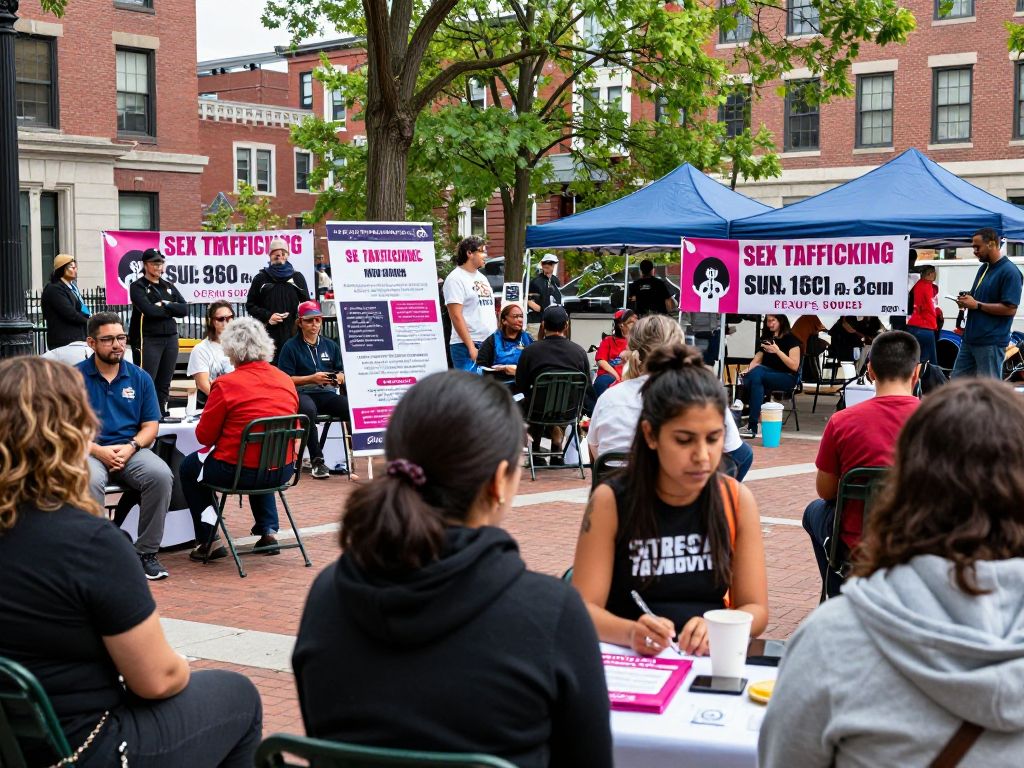Massachusetts, September 13, 2025
News Summary
Communities in Massachusetts are considering a proposal to implement a local real estate transfer fee on high-cost property sales. This measure aims to generate funds for affordable housing and other local initiatives, especially in high-cost areas. While many local officials and advocates support it as a steady funding source, real estate trade groups express concerns about its potential negative effects on the market and administrative challenges. The legislation would allow cities and towns to define ‘luxury’ and set their own thresholds and rates.
Boston — Communities across Massachusetts are advancing a plan to give cities and towns the option to impose a local real estate transfer fee on high-cost property sales to raise money for affordable housing and related local needs.
What lawmakers and communities are proposing
The proposal would permit municipalities to levy a fee on transfers of luxury real estate, with each locality deciding the definition of “luxury.” A baseline threshold under the legislation would be properties sold for $1 million or the median sale price for a single-family home in that locality. Sponsors estimate the measure could generate significant revenue, with projections that the 19 cities and towns that have filed home rule petitions could together raise more than $200 million annually if they adopt the fee.
Who is backing the measure
Support for the local option fee spans elected officials and public-sector groups, including state lawmakers and local leaders, school officials, law enforcement personnel, healthcare workers, and some real estate professionals. Local advocates argue the fee would provide a steady revenue stream for housing production, preservation, and services that support year-round residents in high-cost communities.
Who is opposing it
State real estate trade groups have criticized the transfer fee, warning it could dampen the market for high-end properties and be an inefficient way to fund housing. Opponents also raise concerns about administrative complexity and potential unintended consequences for buyers and sellers.
Legislation and local action
A statewide bill (S 1937, H 3056) sponsored in the Legislature would authorize cities and towns to impose a fee on luxury real estate transfers and let local voters or officials set thresholds and fee rates within statutory guidelines. The bills leave key definitions and implementation details to individual municipalities.
Separately, legislation (H 3193) has been proposed to create a dedicated housing bank on Martha’s Vineyard aimed at increasing the supply of year-round affordable housing on the island. Several towns, including Somerville, Concord, Martha’s Vineyard, and Nantucket, have filed home rule petitions seeking the authority to establish local transfer fees or similar mechanisms.
Context and financial need
Local officials and advocates say existing affordable housing efforts in communities such as Somerville and Cambridge are constrained by a shortage of capital for new development. On Martha’s Vineyard alone, local estimates indicate a need for roughly 740 additional housing units to meet current demand. At the state level, recent analyses indicate Massachusetts must build about 220,000 homes by the end of the decade to keep pace with demand.
Statewide production has increased under the current administration, with more than 90,000 homes developed since Governor Maura Healey took office. However, Massachusetts ranked low in per capita building permits processed in 2024, a factor cited by advocates as evidence that more revenue and policy tools are needed to accelerate housing construction.
Recent policy history and related measures
Governor Healey originally proposed a statewide transfer fee in a housing bill last legislative session, but the fee did not make it into the final version approved by the Legislature. The 2024 housing law created a new designation allowing towns with many second homes to identify as seasonal communities, a change intended to give those towns additional tools to manage local housing markets. Local officials say that without a substantial new revenue source such as a transfer fee, communities cannot fully use that designation to expand affordable housing.
Additional options under discussion include a possible 2026 ballot initiative that would permit municipalities to limit permissible rent increases, and a Cape Cod proposal to levy a 2% surcharge on properties sold for over $2 million to fund affordable housing. Advocates frame transfer fees as a way to reallocate a portion of wealth from high-cost sales—often tied to second-home and investor activity—toward workforce housing and essential local services.
Local impacts and next steps
If enacted, local adoption of transfer fees would require municipal decisions on thresholds and rates, governance of revenues, and mechanisms for distributing funds to projects and programs. Towns and cities that move forward would need to create administrative systems and ensure compliance with state law. Lawmakers sponsoring the bills will continue hearings and advocacy, while opposition groups may push back through legislative debate or legal challenges.
Bottom line
The local option real estate transfer fee is gaining traction among a range of public-sector supporters and some local real estate professionals as a tool to raise substantial funds for housing in high-cost Massachusetts communities. Opponents caution about market impacts and effectiveness. The proposal remains under legislative consideration while multiple towns pursue home rule petitions and additional local policy options are explored.
FAQ
What is a local option real estate transfer fee?
A local option real estate transfer fee is a charge a city or town could impose on the sale of certain high-cost properties. The fee would be collected at the time of transfer and used locally for affordable housing and related services.
Which bills are involved?
The primary proposals in the Legislature are S 1937 and H 3056, which would allow municipalities to adopt local transfer fees. H 3193 is proposed to create a housing bank on Martha’s Vineyard.
Who decides what counts as “luxury” real estate?
Under the proposed legislation, each city or town would set its own threshold for what qualifies as “luxury.” A baseline threshold proposed in the bills is $1 million or the local median sale price for a single-family home.
How much money could this raise?
Estimates suggest the 19 municipalities that have filed home rule petitions could collectively generate more than $200 million annually if they adopt a transfer fee. Actual revenue would depend on thresholds, rates, and local market activity.
Who supports and who opposes the fee?
Supporters include many local officials, service-sector workers, and some real estate professionals who view the fee as a way to fund housing. Opposition comes from major real estate trade groups and others who argue it could harm the real estate market and be a less efficient funding source.
What are the next steps?
The bills are under legislative consideration. Municipalities may continue to file home rule petitions and design local implementation plans. Additional policy measures, ballot initiatives, or local taxes are also being explored in some regions.
Quick reference table
| Item | Details |
|---|---|
| Legislation | S 1937, H 3056 (local transfer fee authority); H 3193 (Martha’s Vineyard housing bank) |
| Proposed baseline threshold | $1 million or local median single-family sale price |
| Estimated revenue (from 19 towns) | More than $200 million annually (collective estimate) |
| Communities actively seeking options | Somerville, Concord, Martha’s Vineyard, Nantucket, towns on Cape Cod and Islands |
| State housing needs | Estimated 220,000 homes needed by end of decade; Martha’s Vineyard needs ~740 units |
| Other proposals | Cape Cod 2% surcharge on sales over $2M; possible 2026 ballot measure on rent limits |
| Main supporters | Local officials, school leaders, law enforcement, healthcare workers, some local agents |
| Main opponents | Massachusetts Board of Realtors, Greater Boston Real Estate Board, market critics |
Deeper Dive: News & Info About This Topic
HERE Resources
Bill Belichick Lists Nantucket Beachfront Cottage for $3.9 Million Ahead of UNC Move
Boston Mayoral Candidates Clash Over Housing Affordability Strategies
Additional Resources
- Cape Cod Times: Real Estate Transfer Fee and Housing Crisis
- Realtor.com: Cape Cod Housing Crisis and Luxury Home Fee
- Fortune: Cape Cod Mansion Tax
- Wikipedia: Real Estate Transfer Tax
- Google Search: Massachusetts Housing Market

Author: STAFF HERE BOSTON WRITER
The BOSTON STAFF WRITER represents the experienced team at HEREBoston.com, your go-to source for actionable local news and information in Boston, Suffolk County, and beyond. Specializing in "news you can use," we cover essential topics like product reviews for personal and business needs, local business directories, politics, real estate trends, neighborhood insights, and state news affecting the area—with deep expertise drawn from years of dedicated reporting and strong community input, including local press releases and business updates. We deliver top reporting on high-value events such as Boston Marathon, Head of the Charles Regatta, and Boston Harborfest. Our coverage extends to key organizations like the Greater Boston Chamber of Commerce and Associated Industries of Massachusetts, plus leading businesses in finance, biotech, and insurance that power the local economy such as Fidelity Investments, Biogen, and Liberty Mutual Insurance. As part of the broader HERE network, we provide comprehensive, credible insights into Massachusetts's dynamic landscape.





